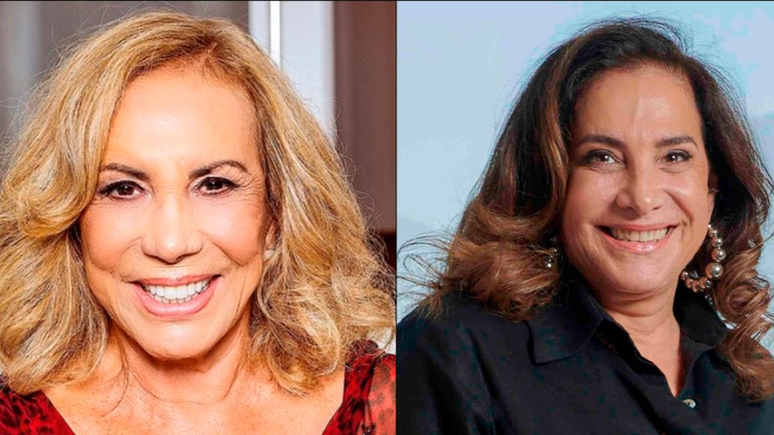The nutritional properties of coffee mainly affect pregnant women, children and the elderly, who face different physiological moments; Experts teach you to eat healthy
html[data-range=”xlarge”] figure image img.img-e524e3e9e379e56b5093bead53d74243fknnnxbp { width: 774px; height: 498px; }HTML[data-range=”large”] figure figure img.img-e524e3e9e379e56b5093bead53d74243fknnnxbp { width: 548px; height: 353px; }HTML[data-range=”small”] figure figure img.img-e524e3e9e379e56b5093bead53d74243fknnnxbp, html[data-range=”medium”] figure image img.img-e524e3e9e379e56b5093bead53d74243fknnnxbp { width: 564px; height: 363px; }
Brazil is the 14th country that drinks the most coffee in the world and, here, the drink is second only to water in the list of the most consumed liquids: this is what emerges from a study carried out by the CouponValido.com.br platform with data from the International Coffee Organization (ICO) and Dieese. The drink is part of Brazilian culture and history, but also reflects on people’s health.
Despite bring more health benefits than harmaccording to experts, coffee causes – mainly due to caffeine – certain effects on the organism that should be considered when regulate the consumption of drinks. According to cardiologist Bruno Mahler Mioto, who dedicated his doctorate to the subject, pregnant womenfor example, he must significantly reduce his consumption so as not to harm the child.
Elderly AND children the number of doses must also be adjusted. As they are in more or less accelerated physiological stages than an adult, it is important to ensure that caffeine does not have a negative influence on these consumer groups.
What is the ideal maximum amount of coffee consumption for pregnant women?
Those who are expecting a child and have a habit of drinking coffee every day should do it adjust the amount again so as not to harm the pregnancy. “Excessive coffee consumption by pregnant women can lead to intrauterine growth restriction, i.e. the baby will grow less, as well as decreased placental flow,” says Mioto.
Juliana Gimenez Casagrande, a nutritionist studying food science at the University of São Paulo (USP) and also a beverage specialist, agrees that the group deserves attention. She explains that the caffeine can compete with nutrients which the pregnant woman and the child need in large quantities, such as, for example, the calcium and iron.
“These are nutrients that react a lot with caffeine. Therefore, the excess caffeine will compete with the absorption of these two minerals, causing that person to suddenly have low calcium and iron absorption,” she says.
Furthermore, the specialist points out that coffee has stimulating properties and, therefore, drinking a lot of it can intensify common symptoms in this period, such as reflux. For these reasons, it is recommended that Pregnant women drink up to two cups of coffee with milk a day – which corresponds to 240-340 ml of filtered coffee per day.
“We add milk for the advantage in relation to the calcium source,” explains Mioto. Espresso coffee has a higher concentration of caffeine, so it should be consumed in smaller quantities or avoided.
How much coffee can children consume per day?
Like pregnant women, children also need a lot of nutrients, especially calcium, as they are found in a moment of growth. At the same time, of physiological immaturitythey have less resistance to the possible negative effects of caffeinefor example insomnia.
“This is a controversial topic, some studies indicate that the ideal is that the person starts consuming coffee only from the age of 12, while others say that, from the age of 6, the drink can already begin to be introduced”, says Giuliana.
For Mioto, that’s the ideal Consumption begins gradually in childhood. “The child can start by trying the parent cup, to get familiar with the drink, and then start drinking coffee with milk for breakfast when he goes to school,” he says.
According to experts, when consumed in moderation, coffee can help with the child’s academic performance. The recommendation is that children up to the age of 10 drink a maximum of 2/3 cups of coffee a day (the equivalent of 200 ml). “Preferably, you should opt for decaf coffee with milk,” advises Juliana.
From 10 to 15 years of age, consumption can be slightly increased: one and a half cups or 350 ml per day, preferably accompanied by milk. After the age of 15, up to the age of 20, the maximum recommended daily amount is four and a half cups of coffee, or 450 ml.
And the elderly?
From the age of 60, people go through a process of slowdown of metabolism. Thus, the absorption and processing of coffee substances in the body occurs more slowly and in smaller quantities.
Experts recommend it seniors who have a habit of drinking coffee every day maintain the practiceas alcohol withdrawal can cause mood swings and even reduce important social aspects, such as meeting friends for afternoon coffee.
However, it is necessary reduce doses for a maximum of three cups of filtered coffee per day, i.e. 300 ml. If it’s espresso, they recommend halving it
Source: Terra
Ben Stock is a lifestyle journalist and author at Gossipify. He writes about topics such as health, wellness, travel, food and home decor. He provides practical advice and inspiration to improve well-being, keeps readers up to date with latest lifestyle news and trends, known for his engaging writing style, in-depth analysis and unique perspectives.








